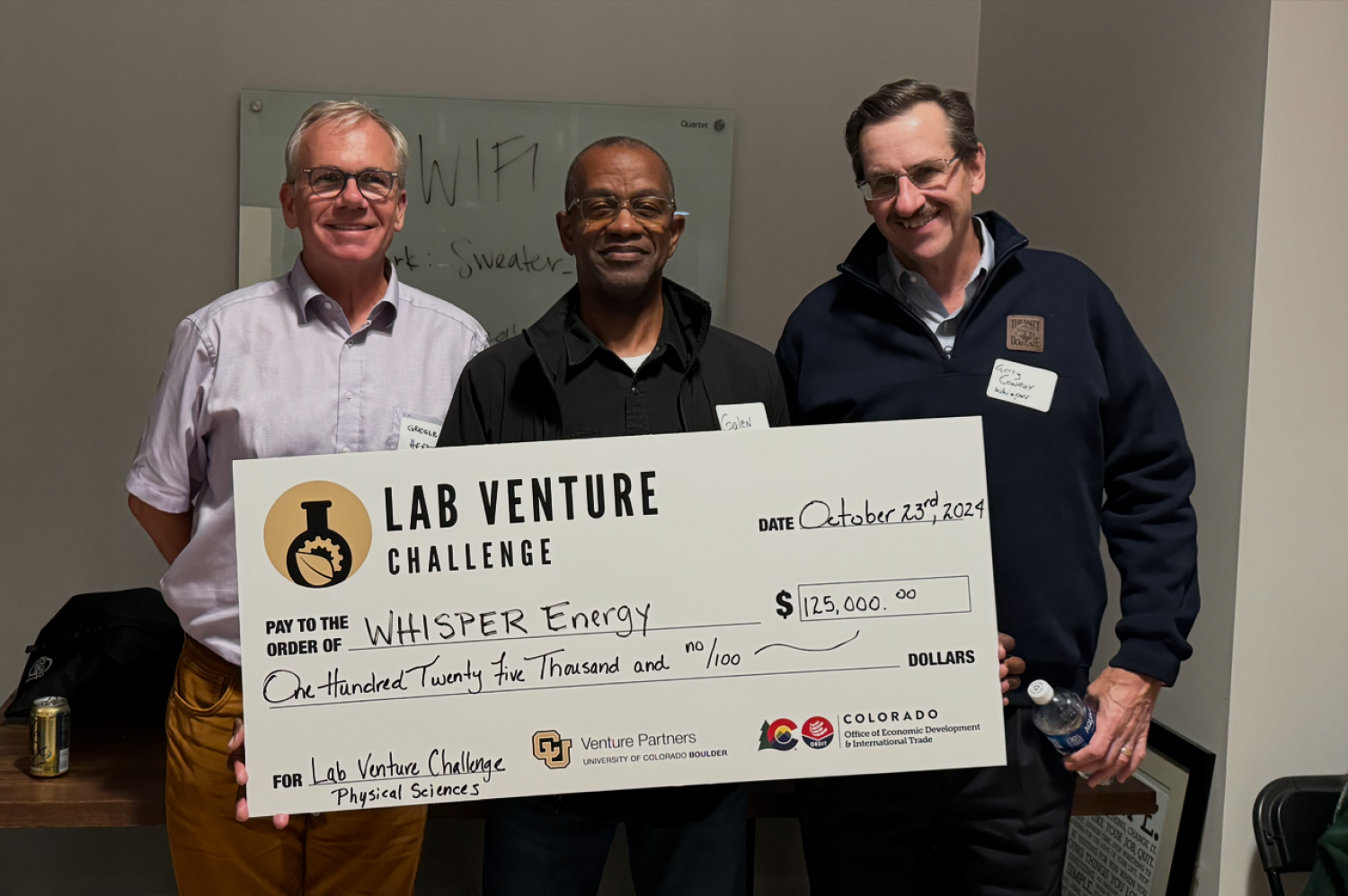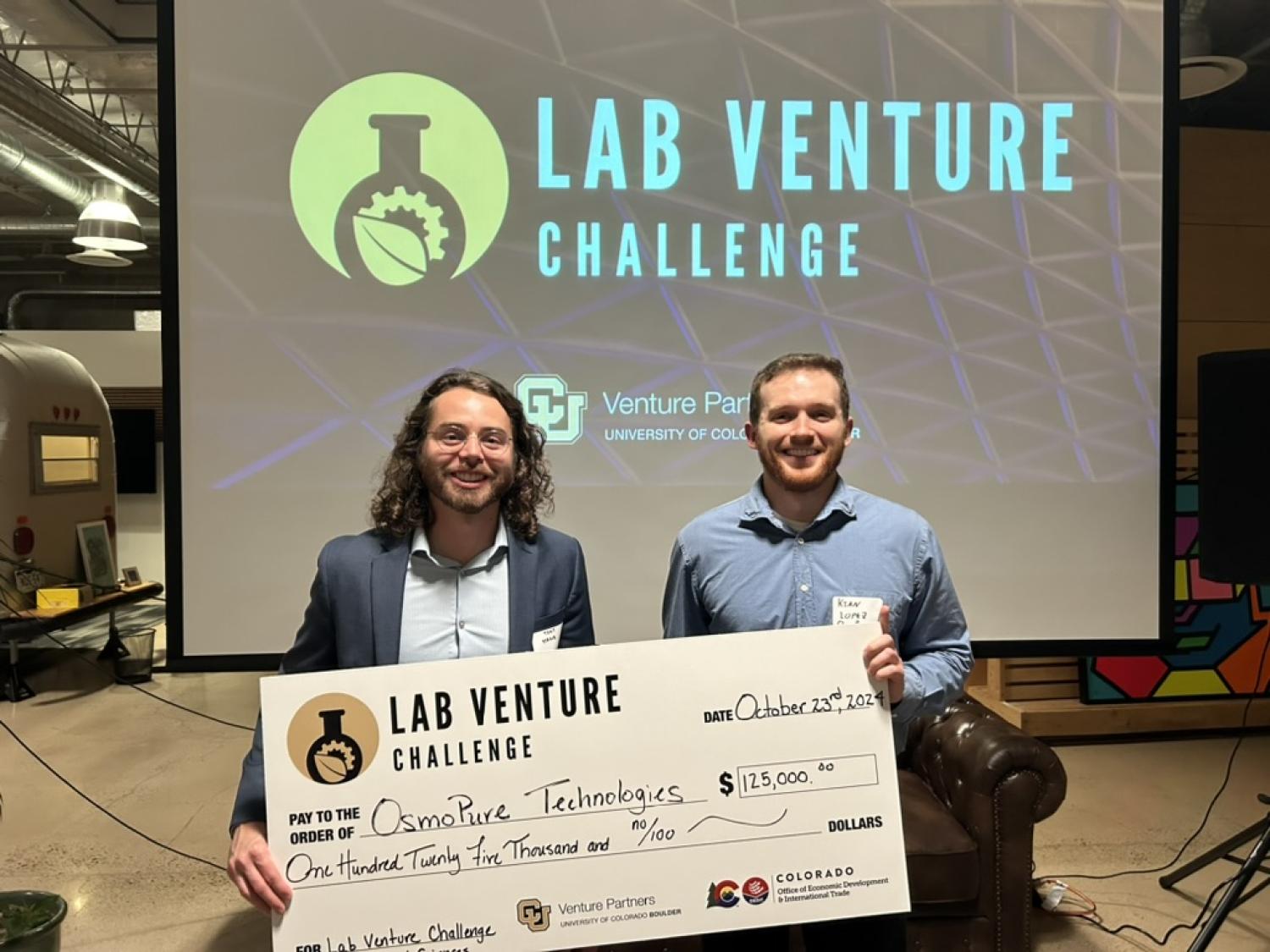Three department-affiliated teams awarded $125K each in Lab Venture Challenge
Three professors from the Department of Civil, Environmental and Architectural Engineering were among 10 teams of University of Colorado Boulder faculty, researchers and graduate student innovators awarded $125,000 each in this year’s Lab Venture Challenge (LVC).
This year, 14 teams of University of Colorado Boulder faculty, researchers and graduate student innovators competed for a combined $1.25 million in startup funding grants. Judges from CU Boulder’s entrepreneurial network heard Shark-Tank-style pitches across two nights, one for innovations in biosciences and another for physical sciences and engineering.
LVC supports projects that address a commercial need, have a clear path to a compelling market and have strong scientific support. The LVC grants are funded by the Colorado Office of Economic Development and International Trade (OEDIT) Advanced Industries Program, as well as Venture Partners at CU Boulder and the Chancellor’s Innovation Fund.
Professor Mark Hernandez, Emmalee Biesiada, a postdoctoral associate in the Hernandez Aerobiology Laboratory, and Steve Hughes, CEO of SteriO3, won in the biosciences division for their work on Peroxide Enhanced Germicidal Irradiation (PEGI) technology, which quickly inactivates microbial contaminants at low temperature. With LVC funding, the team plans to develop compact, portable sterilization systems for medical instruments, including those made with 3D-printed materials.
“I look forward to overseeing the progression of PEGI from the laboratory into real-world applications in emergency medicine,” Biesiada said.
The team envisions the portable sterilization technology being used by emergency medical technicians and paramedics, as well as by disaster response agencies like the Red Cross. Biesiada, who developed the technology during her doctoral studies at CU Boulder, said the team has also been in communication with Army and Navy groups interested in using PEGI for surgical instrument sterilization in combat field medicine. Additionally, the technology has potential applications in veterinary medicine for on-site treatment of animals that cannot be easily transported to a clinic, she said.
Professor Gregor Henze, along with Galen Williams and Gerry Conroy, received the award for Whisper Energy, a wireless, battery-free sensor fusion platform tailored for small to medium-sized commercial buildings. Using radio frequency identification (RFID) technology and machine learning, Whisper Energy aims to significantly reduce energy consumption by providing real-time data to optimize energy use and reduce emissions. Developed with a $2 million ARPA-E grant, the technology promises cost-effective sensing of occupancy and indoor environmental conditions, low-cost energy and emission savings in buildings that have been historically difficult to retrofit.
“The award will allow further refinement of the technology, tailoring it to new use cases, and building a series of prototypes for demonstration purposes,” Henze said.


Assistant Professor Tony Straub and Kian Lopez, a chemical engineering PhD student, won for their startup OsmoPure Technologies, which is developing a membrane for advanced water treatment.The technology uses pressure-driven distillation, rather than heat, to produce high-purity water with 10 times greater energy efficiency. The startup has been developing its technology for water recycling systems on NASA-crewed space missions. LVC funding will enable them to expand into ultrapure water systems for semiconductor manufacturing and other industrial applications.


